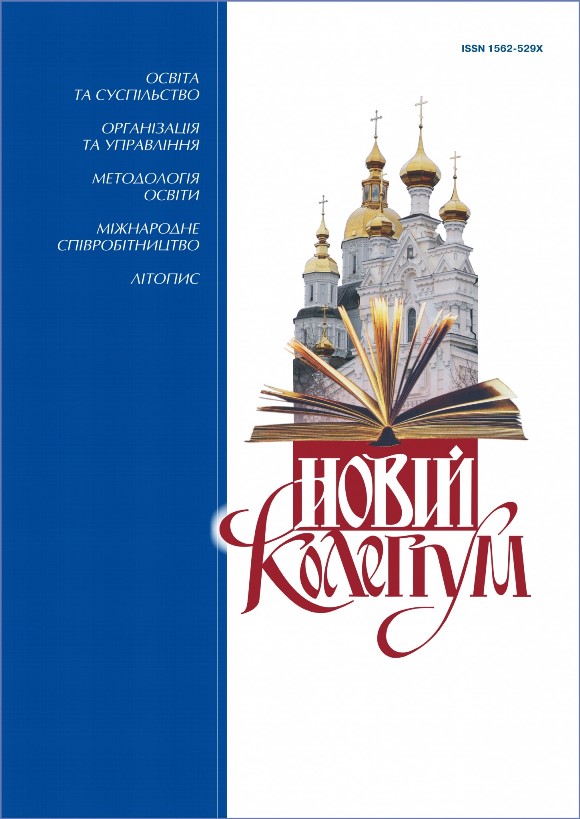Specifics of creating the Cybersecurity Virtual Laboratory for distance learning
DOI:
https://doi.org/10.30837/nc.2020.3.41Keywords:
Distance learning, Virtual laboratory, Cybersecurity, Virtualization, Software, Practical SkillsAbstract
Currently, in conditions of distance learning of students, the problem of the organization of practical and laboratory works acquires special importance. This mainly applies to technical universities, where training in normal conditions is carried out on real equipment and using specialized software. As a result, there is an urgent need to create virtual labs as an effective platform for distance learning for students, particularly in the field of cybersecurity. In this case, one of the effective solutions is to create and deploy a Cybersecurity Virtual Laboratory (CVLab) for distance learning, which will help ensure continuous quality training of future professionals. Besides, distance learning must not be for informational purposes only. Therefore, the formation of practical skills of students requires rapid development and implementation of the effective means of distance learning. Recently, the trend of virtualization of both networks and computers has developed intensively, which allows the development and implementation of more flexible types of virtualized laboratory solutions, including for distance learning. The number of virtualization tools, as well as the latest network equipment created to work in a virtual environment (hypervisors) is increasing. Thus, virtualization allows us to overcome the limitations of traditional networks and hardware network laboratories, given their high cost, power consumption, stability, a limited number of devices, and so on. The introduction of the virtual cybersecurity laboratory CVLab in order to increase the effectiveness of distance education meets the objectives of the Cybersecurity Strategy of Ukraine, as well as priorities and areas of its provision, ranging from general digital literacy to training of security sector actors.
References
Segeč P., Moravčík M., Kontšek M., Papán J., Uramová J., Yeremenko O. Network virtualization tools–analysis and application in higher education. 17th International Conference on Emerging eLearning Technologies and Applications (ICETA) 2019. Starý Smokovec, Slovakia, 21-22 Nov. 2019 // IEEE, 2019. P. 699-708. DOI: https://doi.org/10.1109/ICETA48886.2019.9040148.
Carlsson A., Kuzminykh I., Gustavsson R. Virtual Security Labs Supporting Distance Education in ReSeLa Framework. The Challenges of the Digital Transformation in Education. ICL 2018 // Advances in Intelligent Systems and Computing, Vol. 917. Springer, Cham, 2019. P. 577-587. DOI: https://doi.org/10.1007/978-3-030-11935-5_55.
Carlsson A., Gustavsson R., Truksans L., Balodis M. Remote security labs in the cloud ReSeLa. IEEE Global Engineering Education Conference (EDUCON) 2015. Tallinn, Estonia, 18-20 March 2015 // IEEE, 2015. P. 199-206. https://doi.org/10.1109/EDUCON.2015.7095971.
Mouheb D., Abbas S., Merabti M. Cybersecurity Curriculum Design: A Survey. Transactions on Edutainment XV // Lecture Notes in Computer Science, Vol. 11345. Springer, Berlin, Heidelberg, 2019. P. 93-107. DOI: https://doi.org/10.1007/978-3-662-59351-6_9.
Haag J., Vranken H., van Eekelen M. A Virtual Classroom for Cybersecurity Education. Transactions on Edutainment XV // Lecture Notes in Computer Science, Vol. 11345. Springer, Berlin, Heidelberg, 2019. P. 173-208. DOI: https://doi.org/10.1007/978-3-662-59351-6_13.
Tunc C., Hariri S., Montero F.D.L.P., Fargo F., Satam P., Al-Nashif Y. Teaching and Training Cybersecurity as a Cloud Service. 2015 International Conference on Cloud and Autonomic Computing. Boston, MA, USA, 21-25 Sept. 2015 // IEEE, 2015. P. 302-308. https://doi.org/10.1109/ICCAC.2015.47.
SEED Labs. URL: http://www.cis.syr.edu/∼wedu/seed/lab env.html
Murphy J., Sihler E., Ebben M., Lovewell L., Wilson G. Building a Virtual Cybersecurity Collaborative Learning Laboratory (VCCLL) // International Conference on Security and Management (SAM) (p. 1). The Steering Committee of The World Congress in Computer Science, Computer Engineering and Applied Computing (WorldComp). 2014. P. 1-5.
Powell V.J., Davis C.T., Johnson R.S., Wu P.Y., Turchek J.C., Parker I.W. September. VLabNet: the integrated design of hands-on learning in information security and networking // 4th annual conference on Information security curriculum development. 2007. P. 1-7. DOI: https://doi.org/10.1145/1409908.1409918.
Willems C., Meinel C. Tele-lab IT-security: An architecture for an online virtual IT security lab // International Journal of Online and Biomedical Engineering (iJOE). 2008. Vol. 4. No. 2. P. 31-37.
Willems C., Klingbeil T., Radvilavicius L., Cenys A., Meinel C. A distributed virtual laboratory architecture for cybersecurity training // International Conference for Internet Technology and Secured Transactions. Abu Dhabi, United Arab Emirates, 11-14 Dec. 2011. IEEE, 2011. P. 408-415.
Cano J., Hernández R., Ros S., Tobarra L. A distributed laboratory architecture for game based learning in cybersecurity and critical infrastructures // 13th International Conference on Remote Engineering and Virtual Instrumentation (REV). Madrid, Spain, 24-26 Feb. 2016. IEEE, 2016. P. 183-185. DOI: https://doi.org/10.1109/REV.2016.7444461.
Nance K., Hay B., Dodge R., Seazzu A., Burd S. Virtual laboratory environments: Methodologies for educating cybersecurity researchers // Methodological Innovations Online. 2009. Vol. 4, No. 3. P. 3-14.
Moritz D., Willems C., Goderbauer M., Moeller P., Meinel C. Enhancing a virtual security lab with a private cloud framework // IEEE International Conference on Teaching, Assessment and Learning for Engineering (TALE). Bali, Indonesia, 26-29 Aug. 2013. IEEE, 2013. P. 314-320. DOI: https://doi.org/TALE.2013.6654452.
Salah K., Hammoud M., Zeadally S. Teaching cybersecurity using the cloud // IEEE Transactions on Learning Technologies. 2015. Vol. 8, No. 4. P. 383-392. DOI: https://doi.org/TLT.2015.2424692.
Стратегія кібербезпеки України: Указ Президента України від 15.03.2016 р. № 96/2016. URL: https://zakon.rada.gov.ua/laws/show/96/2016#n11.

